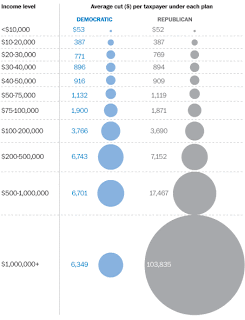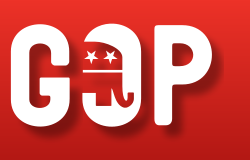
The looming Senate debate on taxes sets up a showdown between George W. Bush and President Obama on tax policy — and the former president could come out the winner. The Senate is expected to hold dueling votes on extending the cuts before they expire on Dec. 31, and Bush’s policy could get more support in the Democratic-controlled chamber. Obama’s proposal to extend tax rates for middle-class families but allow taxes to rise for families making over $250,000 a year is given almost no chance of passing the upper chamber. Meanwhile, Senate Republican Leader Mitch McConnell (Ky.) is pushing an across-the board extension of the cuts. Senate insiders think the most likely compromise is a two-year extension of all the cuts, which formed the economic centerpiece of Bush’s presidency.
I am not one fully understands politics/economics, however I know enough to be able to determine whats better for our nation as a whole. Obama's plan may have flaws but I believe it is more beneficial to the country as a whole rather than Bush's which was only beneficial to the U.S.'s top 20%.
http://thehill.com/homenews/administration/131045-tax-fight-pits-bush-vs-obama






